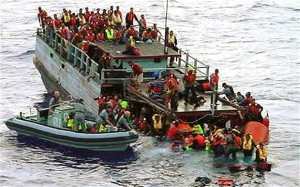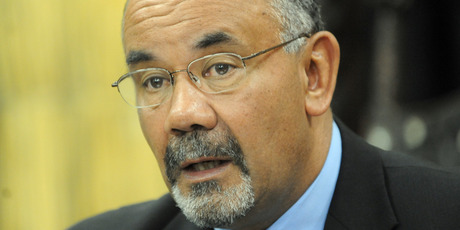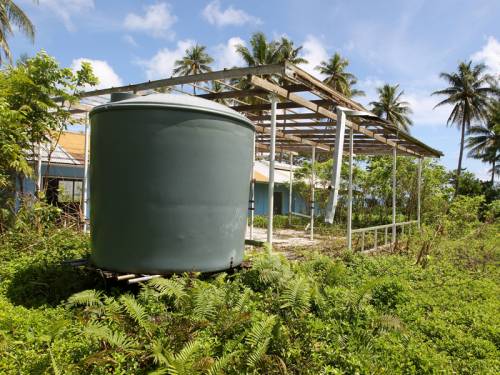By Max Bartels
Impunity Watch Reporter, Oceania
Canberra, Australia — Thousands of people attempt to reach Australia by boat each year to seek asylum, mostly from Indonesia and other pacific islands. It has been the practice of the Australian government to intercept these asylum seekers at sea and transport them to one of a number of asylum detention centers until the government decides what to do with them. One of these detention centers in located on Manus Island in Papua New Guinea and another on the small atoll of Naru.

(Photo Cutesy of The Telegraph )
In February unrest broke out over night at the Manus Island detention center where one asylum seeker was killed and a great deal more were injured, 2 had to be flown to Australia to receive treatment, one with a gun shot wound and another with a fractured skull. Similar unrest has also occurred at the Naru detention center where the asylum seekers burned down their shelters at the facility last year.
Amnesty International reports that the asylum seeker who died in the February Manus riots was Iranian and that during the riots he was beaten and hit in the head until he died. Amnesty International’s investigation of the incident, reports that the local police and the security staff used brutal and excessive force on the night of the riot. The investigation blames both the Australian government and the government of Papua New Guinea.
Despite the unrest Australia plans to continue its practice of offsite detention centers. The government maintains that it is still the best way to handle the issue of immigration, which is a serious political issue across the country. The government has cited the safety of the asylum seekers as one of the main reasons for the policy. The government claims that is it is important to deter these immigrants from attempting the perilous journey to Australia in open top boats. These boat are usually crammed to capacity or over capacity with immigrants and the journey is extremely perilous.
Even though the Australian Government presents valid points for their policies, human rights organizations have recorded a number of human rights violations at these detention centers. There have been numerous allegations of hunger strikes, suicide attempts, self-harm and unsanitary living conditions. Amnesty international has received reports that the detention centers do not provide adequate medical care. Amnesty international visited the Manus detention center this past November and reported asylum seekers were enduring unacceptably harsh conditions and humiliating treatment.
For more information please see:
Aljazeera — Asylum Seeker Dies in Papua New Guinea Camp — 18 February 2014
CNN– 1 Dead, Dozens Hurt After Unrest at Australian Center For Asylum Seekers — 18 February 2014



